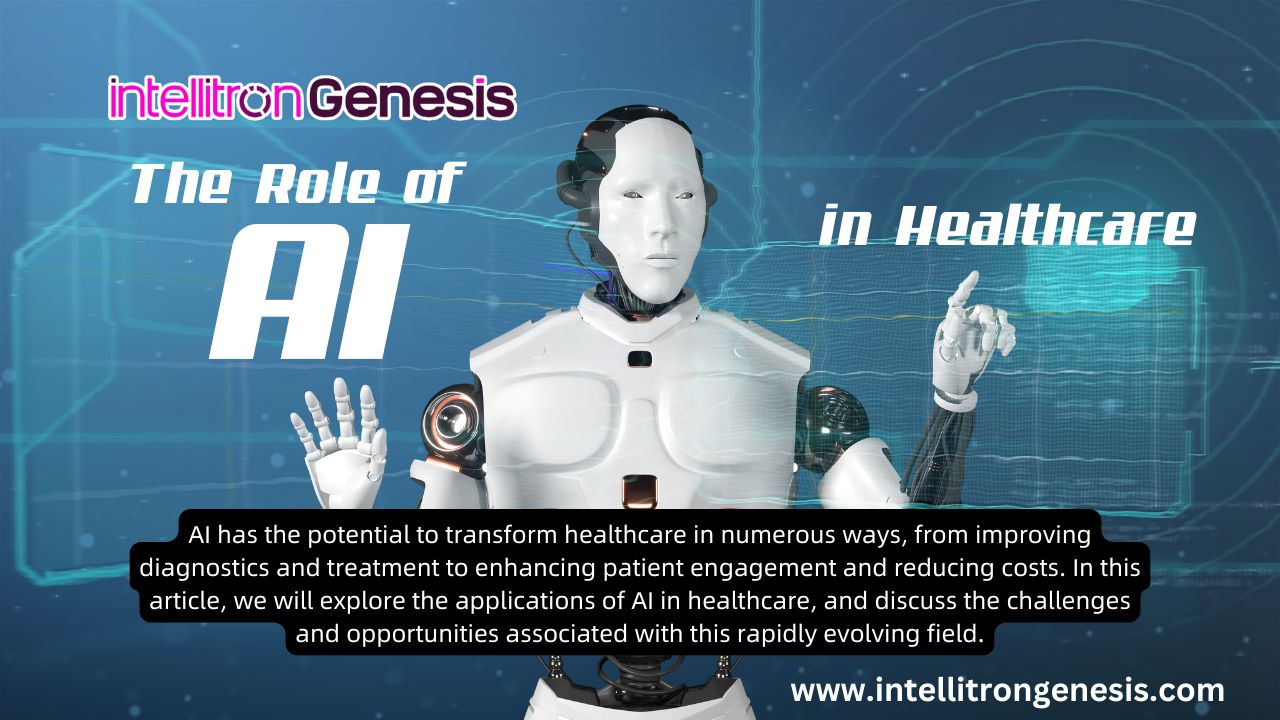
Revolutionizing Healthcare with AI Technologies: The Impact of AI on the Healthcare Industry

As we approach the festive season of Diwali in 2024, it’s an ideal time to reflect on advancements that enhance our lives. One of the most transformative forces shaping the future is artificial intelligence (AI). The impact of AI on the healthcare industry is nothing short of revolutionary—changing the ways we diagnose diseases, treat patients, and manage health systems. At Intellitron Genesis, we celebrate technology’s profound role in enhancing healthcare experiences and outcomes. In this blog post, we will explore the myriad ways AI is reshaping the healthcare landscape, providing insights into its benefits, challenges, and future potential.
Understanding the Role of AI in Healthcare
AI encompasses a range of technologies, including machine learning, natural language processing, and data analytics. These tools facilitate the analysis of large datasets and help healthcare providers make informed decisions based on real-time insights. AI’s capabilities include:
- Predictive Analytics: By analyzing historical patient data, AI systems can predict health risks and potential complications before they arise. This proactive approach enables healthcare providers to personalize treatment plans and improve patient outcomes.
- Medical Imaging and Diagnostics: AI algorithms can interpret medical images faster and often with more accuracy than human practitioners. This technology is invaluable in diagnosing conditions, from cancers to neurological disorders, ensuring patients receive timely and precise treatment.
- Robotic Surgery: Robotic-assisted surgery, powered by AI, provides surgeons with enhanced precision and control. Minimally invasive procedures lead to shorter recovery times, fewer complications, and better overall patient satisfaction.
- Virtual Health Assistants: AI-driven chatbots and virtual assistants offer immediate support to patients, answering queries, scheduling appointments, and providing medication reminders. This automation allows healthcare professionals to focus on more critical tasks, improving efficiency and service.
- Drug Discovery and Development: AI accelerates the drug discovery process by analyzing biological data and exploring potential compounds, thus significantly reducing time and costs associated with bringing new medications to market.
Benefits of AI in Healthcare
The integration of AI in healthcare comes with numerous advantages:
- Enhanced Efficiency: AI systems streamline administrative tasks, reducing paperwork and allowing healthcare professionals to devote more time to patient care.
- Improved Accuracy and Reduction of Errors: AI algorithms can analyze vast quantities of data with higher accuracy, resulting in fewer diagnostic errors and less variability in treatment recommendations.
- Cost Reduction: AI technologies help identify inefficiencies in healthcare delivery, leading to significant cost savings for both providers and patients.
- Increased Accessibility: Telemedicine and AI-driven consultations make healthcare accessible to remote and underserved populations, breaking down geographical barriers.
Challenges to Implementing AI in Healthcare
Despite the advantages, there are notable challenges in implementing AI technologies in healthcare:
- Data Privacy: Safeguarding patient data against breaches is paramount. Healthcare organizations must ensure AI systems comply with regulations such as HIPAA to protect sensitive information.
- Integration with Existing Systems: Implementing AI technologies often requires overhauling existing health IT systems. This integration can be costly and time-consuming.
- Trust and Transparency: Building trust among healthcare providers and patients is essential. Clear communication regarding AI’s capabilities and limitations will be crucial in fostering acceptance.
The Future of AI in Healthcare
Looking ahead, the potential for AI in healthcare is immense. As technology evolves, we can anticipate:
- Personalized Medicine: AI will enable even more tailored treatment plans based on individual genomics and lifestyle factors.
- Continuous Monitoring: Wearable devices that incorporate AI will continuously monitor health metrics, allowing for real-time adjustments to treatments.
- Global Health Solutions: AI can play a pivotal role in addressing global health issues, including pandemics and chronic disease management, enabling proactive and coordinated responses.
Conclusion: Embracing AI this Diwali 2024
As we celebrate Diwali 2024, a festival symbolizing new beginnings and the triumph of light over darkness, let us also embrace the bright future of healthcare driven by AI technologies. At Intellitron Genesis, we believe that the intersection of healthcare and artificial intelligence is a crucial step toward enhancing patient care, improving outcomes, and ultimately saving lives.
Join us this festive season in celebrating the innovations that promise a healthier, more accessible future for all. As AI continues to transform the healthcare landscape, we invite you to explore the possibilities and be part of this exciting journey.
